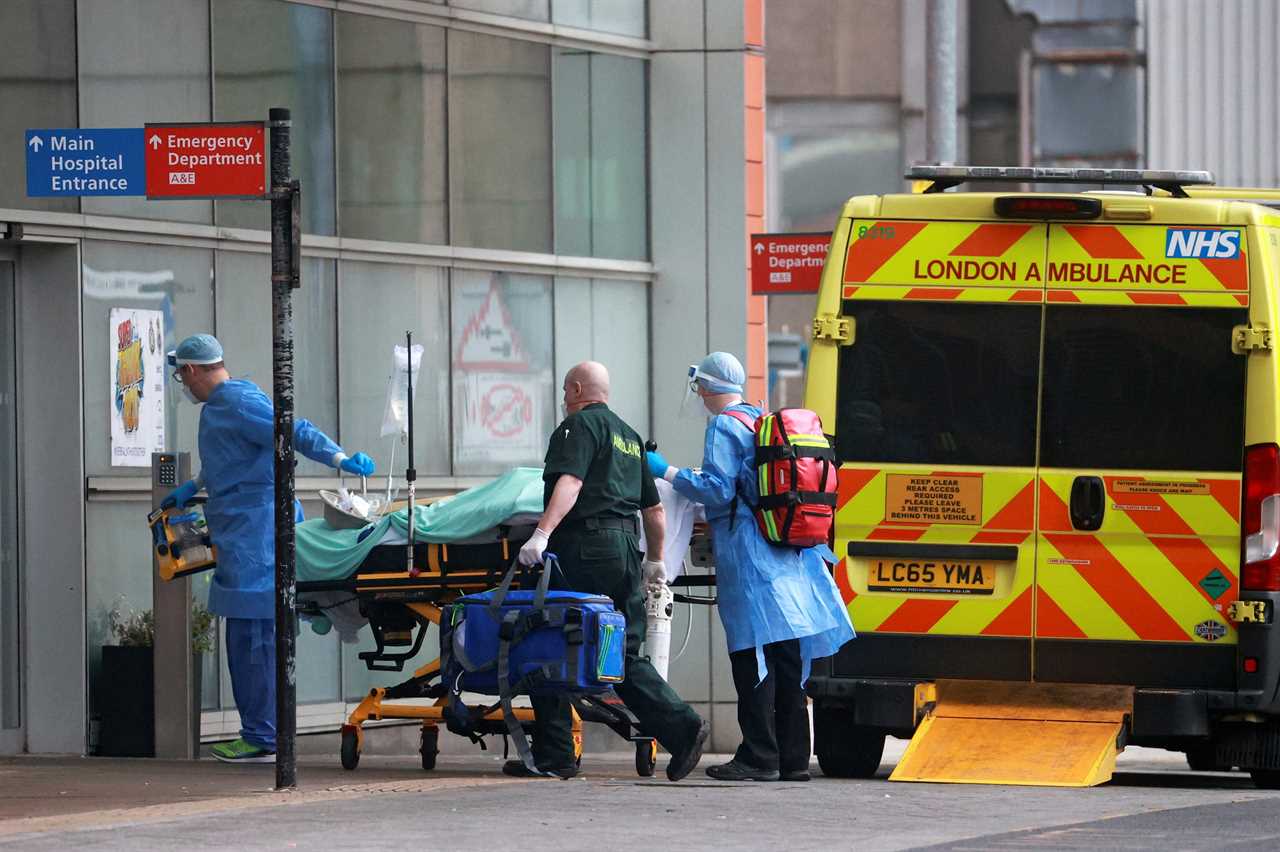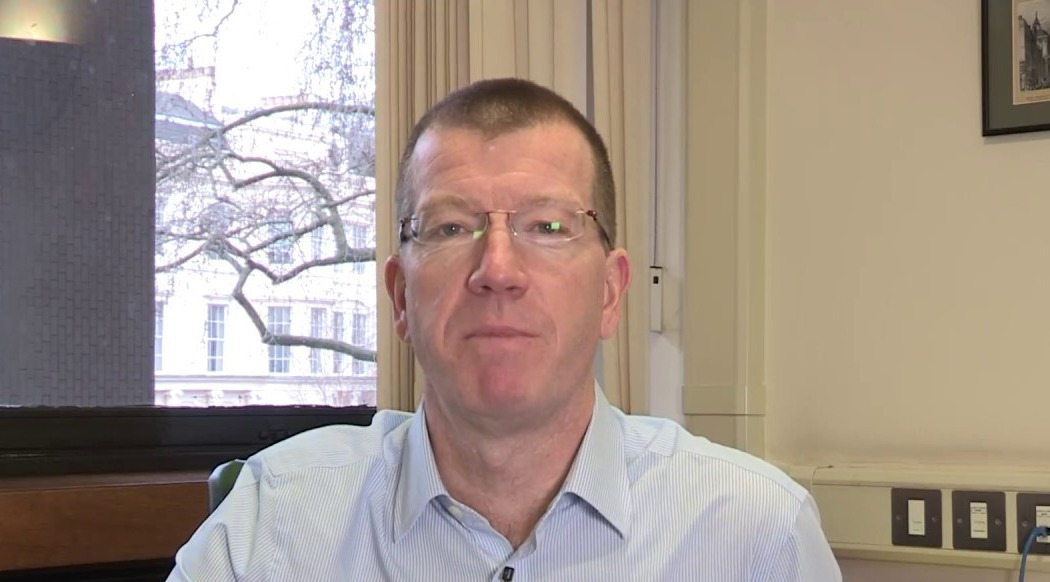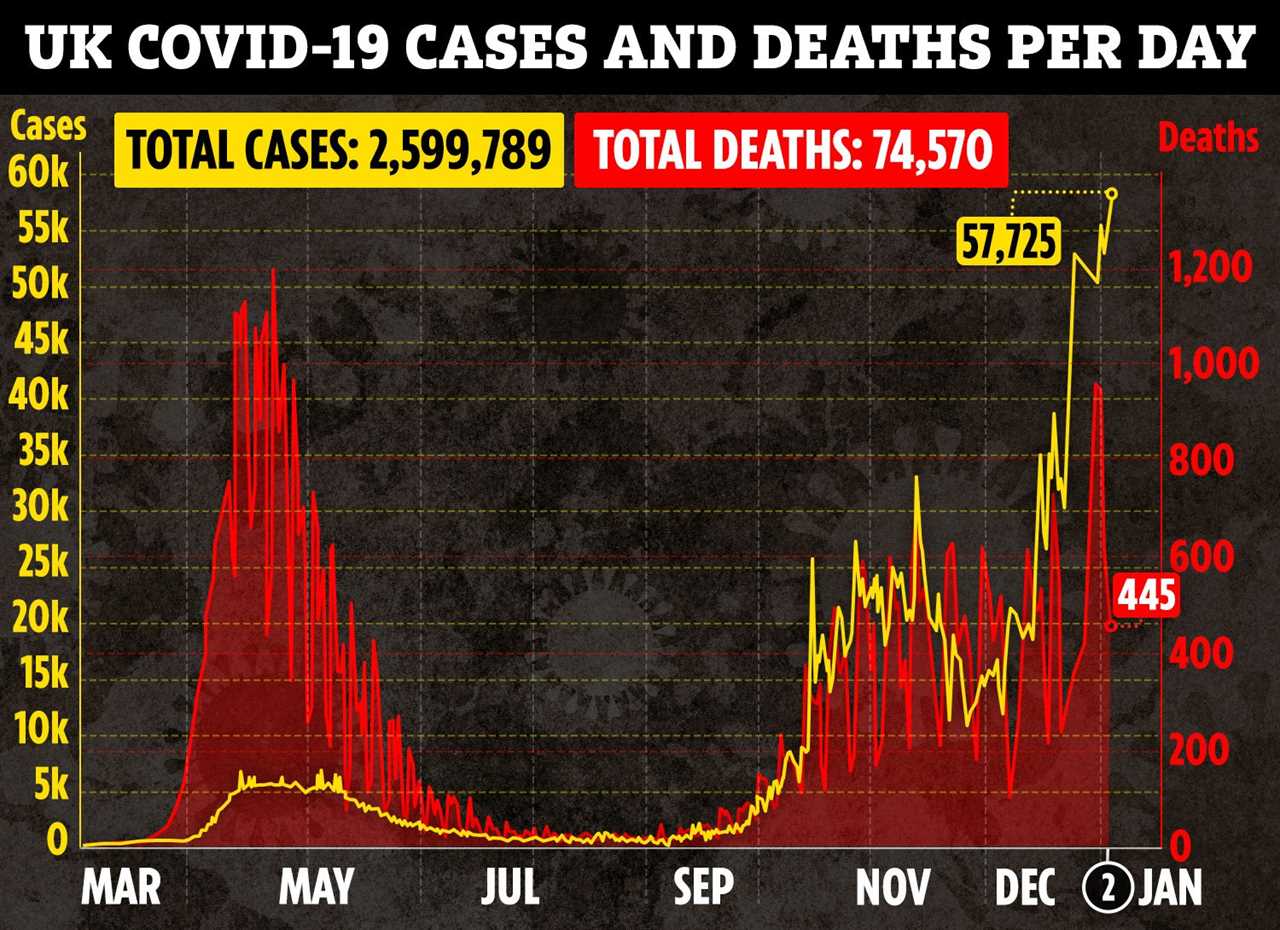BORIS Johnson today refused to rule out a full national lockdown and warned he may have to introduce tougher coronavirus restrictions “in the next few weeks”.
The Prime Minister said we need to be “realistic” about the pace of which the new mutant Covid variant is spreading across the country.
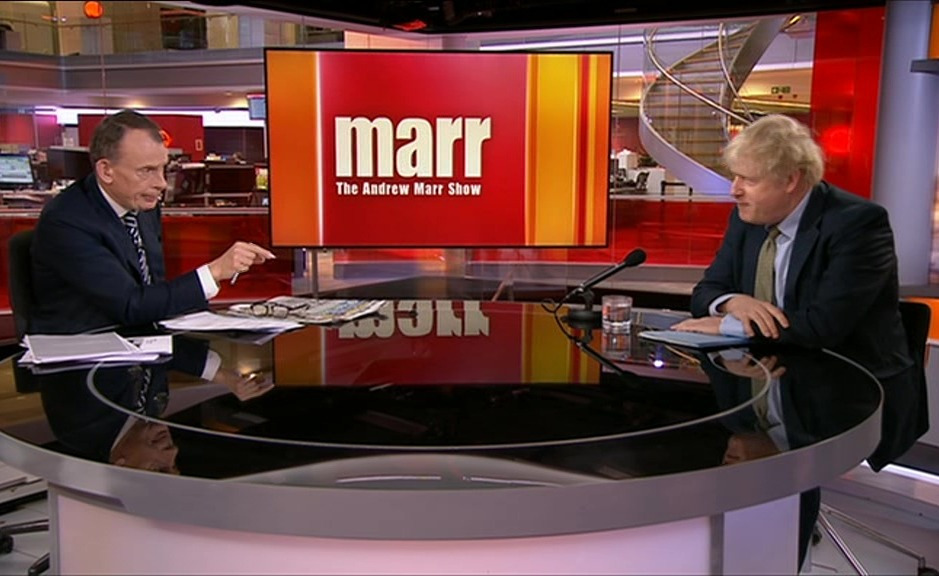
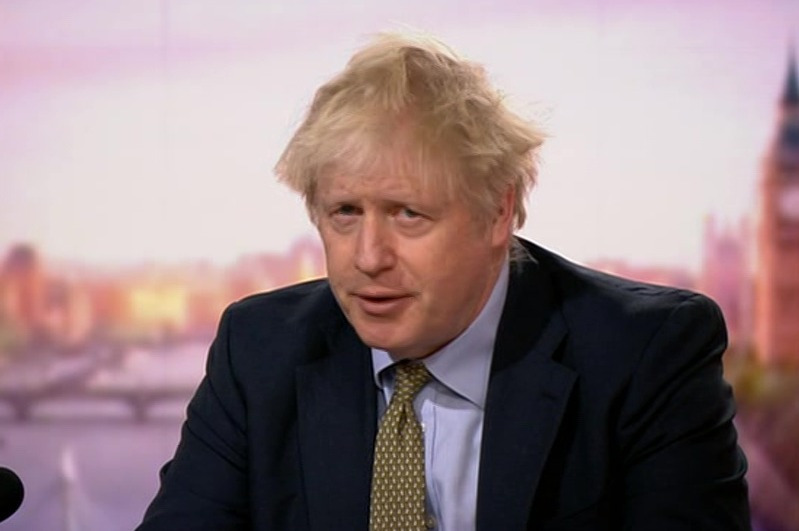
He said new “tougher” measures may need to be used in “many parts of the country” in a desperate bid to reduce the number of coronavirus cases.
Speaking on The Andrew Marr Show, he said “yes” when asked whether it may be necessary to bring in new tougher restrictions.
In March, the Prime Minister introduced measures which dramatically changed people’s lives and confined them largely to their own homes.
Brits were only allowed to leave their properties once for exercise and to go grocery shopping.
TOUGHER RESTRICTIONS
And Mr Johnson today hinted that tougher restrictions than the current Tier 4 guidelines could be brought in later this month.
He said: “It may be that we need to do things in the next few weeks that will be tougher in many parts of the country.
“I’m fully reconciled to that, I bet the people of this country are reconciled to that until the vaccine comes on stream in a massive way, we’re fighting this virus with the same set of tools.”
The 56-year-old would not speculate on the type of new restrictions but said the country would be aware of the things the government could introduce.
He added: “You’ve spoken about Tier 5, I haven’t said that. But there are obviously a range of tougher measures that we would have to consider.
“I don’t want to speculate, I’m not going to speculate now about what they might be but I’m sure all our viewers and listeners will understand the sort of things.
“And you’ve mentioned some, school closures, which we had to do in March, is one of those things. It’s not something we necessarily want to do.”
During the same interview, Mr Johnson also today told parents schools are safe – but a SAGE adviser warned kids are seven times more likely to bring Covid home.
He said “the threat to young people is very, very small, the risk to staff is very small” in a debate on schools reopening amid a surge in cases.
Children are meant to return to class from Monday, but unions are trying to force schools to stay shut – and SAGE experts say pupils might not fully return to lessons until February.
The PM said: “I understand people’s frustrations, I understand people’s anxieties, but there is no doubt in my mind schools are safe.”
He told parents to send their kids back to primary schools tomorrow “in areas where schools are open”.
Speaking about the new mutant strain, he said: “We’ve got to be realistic about the pace of which the new variant is spreading.
“We’ve got to be realistic about the impact it’s having on the NHS. And we’ve got to be humbled in the face of this virus.
“We can see the way ahead, we can see what’s coming down the track in terms of a route forward, we can see how to get out of this, but we do have a tough period ahead.
“The message I’m trying to get over to people is the same when I was on in October.
“You said ‘how does it look’ and I said we’re going to have a very bumpy period at Christmas and beyond, but I thought by spring things would be better.
“And I stick to that, I think that’s roughly how it’s going to be.”
It comes as a top doctor warned the record levels of coronavirus cases seen this week are “mild” compared with where they are expected to be next week.
MUTANT STRAIN
Yesterday saw the UK record its largest daily jump in cases since the start of the pandemic, with 57,725 positive tests reported.
It was the fifth day in a row that the figure had topped 50,000 and brought the total number of positive tests in Britain to 2,599,789.
A further 445 deaths were also recorded, bringing the overall toll to 74,570.
Speaking to the BBC, Professor Andrew Goddard, of the Royal College of Physicians, said the current case count was “mild” compared with where it will likely be next week.
“There’s no doubt that Christmas is going to have a big impact,” he said.
“The new variant is also going to have a big impact, we know that is more infectious, more transmissible.
“So I think the large numbers that we’re seeing in the South East, in London, in south Wales, is now going to be reflected over the next month, two months even, over the rest of the country.
“It seems very likely that we are going to see more and more cases, wherever people work in the UK, and we need to be prepared for that.”
